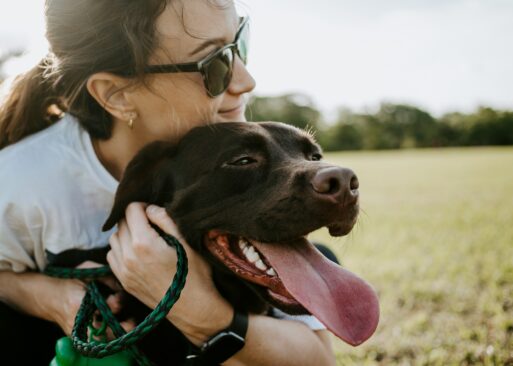
Large dogs tend to live much shorter lives than their human companions.
Dogs are man’s best friend. Sadly, man will lose a lot of best friends. Our furry companions provide us with irreplaceable companionship and unconditional love, but their lifespans are about a seven times shorter than ours (hence “dog years”). There’s a company that’s trying to change that.
California-based biotech firm Loyal is trying to leverage biotechnological advancements to extend the lifespans of our four-legged friends.
What is Loyal’s Method?
Loyal is focusing on three drugs for their mission: LOY-001, LOY-002, and LOY-003. LOY-001 and LOY-003 aim to slow aging for large breeds of dogs, which can have half the lifespan of smaller dogs. And LOY-002 is intended for all but the smallest breeds of dogs.

Source: Mubashar Ali from Burst
These drugs are intended to modulate the growth hormone insulinlike growth factor-1, or IGF-1. Scientists theorize that IGF-1 both causes big dogs to grow and age more quickly than other dogs. Their drug could theoretically control the release of this hormone.
It’s theorized that lower insulin levels in dogs correlate to reduced frailty and a higher quality of life. Right now, the company aiming to prove they can expand a healthy life span by one year.
Why Dogs? Why Now?
According to Loyal’s website, it is a “clinical-stage veterinary medicine company developing drugs intended to extend the healthspan and lifespan of dogs.” Also their website states that it’s part of the company Cellular Longevity.
The companies are focused on extending lifespan, first in dogs, then in humans. Loyal founder and CEO Celine Halioua echoed this sentiment in an interview on the podcast “Plain English.” Halioua explained that testing lifespan extending drugs on humans simply takes too long. Because of our longer lifespans, it takes longer to know if the treatments are working. She said it could take a “decade or more” to measure the results for humans, but for dogs, it may only take “three to five years.”
Loyal Launches a Nationwide Clinical Trial
While it’s too soon to know the results or efficacy of these drugs, Loyal continues to test them. It just launched the STAY study earlier this month, which will be the largest clinical study of its kind. It’s expected to last over four years and involve over 1,000 dogs.
According to Halioua, the most severe side effects of these drugs have been mild gastrointestinal distress. She told the New York Times that the bar for safety would be “extremely, extremely, extremely high.”
We’ll have to wait to see what these trials reveal, but an official at the U.S. Food and Drug Administration wrote to Loyal last year, saying “the data you provided are sufficient to show that there is a reasonable expectation of effectiveness.”
Regardless of if and when these results materialize, it’s safe to say that science is on the scent of something that could give us more time with our best friends.

 What If You Could Give Your Dog an Extra Year of Life?
What If You Could Give Your Dog an Extra Year of Life?


 Our Annual Seven Holiday Gifts for Someone Who Is Grieving, 2024 Edition
Our Annual Seven Holiday Gifts for Someone Who Is Grieving, 2024 Edition
 “Making Mobiles” by Karolina Merska
“Making Mobiles” by Karolina Merska
 “Hands Up to the Sky” by Michael Franti & Spearhead
“Hands Up to the Sky” by Michael Franti & Spearhead














